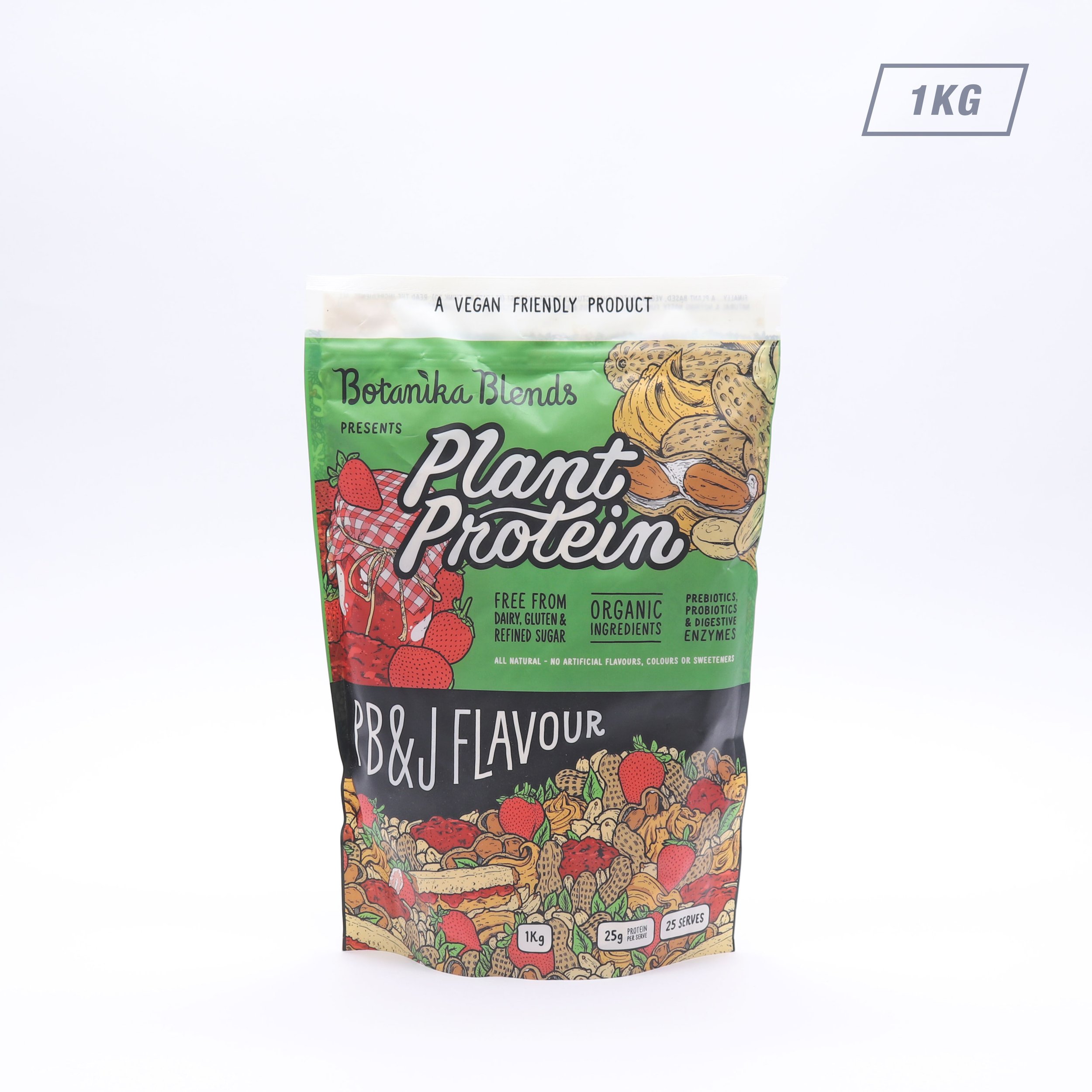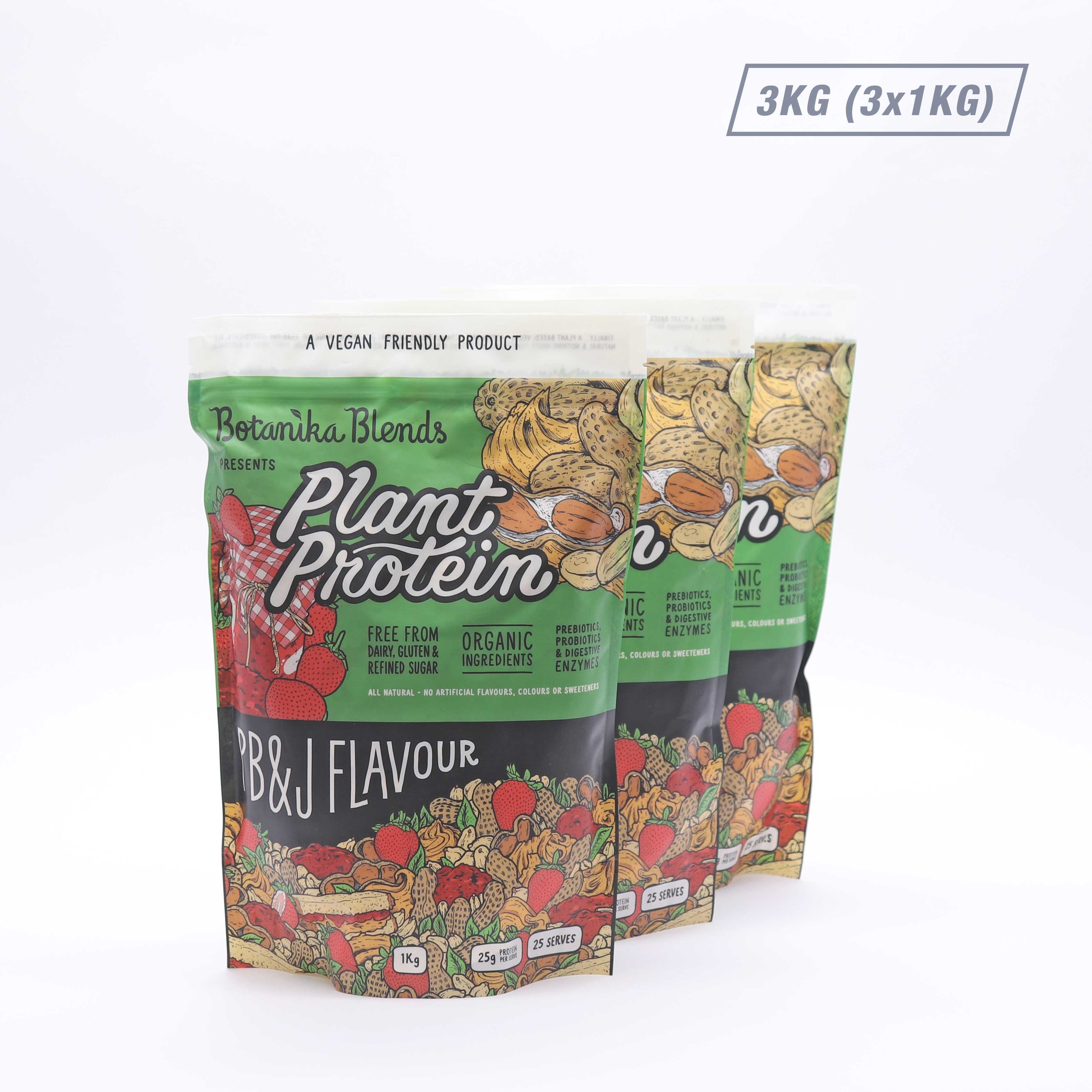Xanthan Gum-Free Protein Powder: A Health Conscious Choice!
Jump to: Our Favourite Protein Powder with no Xanthan Gum
Protein powders have gained significant popularity as a dietary supplement among fitness enthusiasts, athletes, and health-conscious individuals. As more people adopt specific dietary preferences and grapple with digestive concerns, the demand for xanthan gum-free protein powders has surged. In this article, we delve into the reasons behind the exclusion of xanthan gum from protein powders and explore the alternative solutions offered by specialised protein powder brands.
Derived from the fermentation of sugars by the bacterium 'Xanthomonas campestris,' xanthan gum is a polysaccharide commonly used as a thickening and stabilizing agent. It enhances the texture and stability of protein powders, contributing to a smooth and creamy consistency when mixed with liquids.
Although xanthan gum offers a number of advantages as an additive, it is also linked to digestive sensitivity concerns and can also have a laxative effect. Some specialised protein powder brands eliminate xanthan gum from their ingredient list, providing alternative stabilisers and thickeners for a cleaner, more tailored solution for health-conscious consumers. Xanthan gum serves a significant purpose as an additive in protein powders, however there are equally effective natural alternatives available that don't come with the digestive discomfort or side effects.
In the following article, we will explore the reasons why xanthan gum is excluded from protein powders and explore the benefits and alternatives offered by specialised brands, including our favourite xanthan gum-free protein powder!
Is Xanthan Gum Safe or is it Harmful to Consume? What are the Pros & Cons?
Opting for a xanthan gum-free protein powder formulation offers a range of health benefits. While most individuals can consume xanthan gum without any issues, some people may experience digestive discomfort, allergies, or sensitivities to it. We will explore the potential benefits and risks associated with xanthan gum, helping you make informed decisions about its inclusion in your protein powder and diet.
Xanthan Gum Benefits:
Affordable: Xanthan gum is considered an affordable ingredient to produce, especially when compared to other more natural thickeners and stabilisers used in the food industry. It is produced from the fermentation of readily available ingredients such as sugar or corn which contributes to its relatively low production cost. The use of these economical raw ingredients in protein powders allow supplement manufacturers to pass on these savings to consumers with an affordable product or supplement.
Texture: Xanthan gum is known to improve the texture of protein powders. As a thickening and stabilising agent, it helps create a smoother and more consistent texture in protein powders when mixed with liquids. Xanthan gum helps contribute to a smoother and more creamy texture, enhancing the protein shake experience and palatability.
Separation of Ingredients & Clumping: Xanthan gum plays a crucial role in preventing ingredient separation in protein powders. As a hydrocolloid (absorbs and retains water), xanthan gum has the ability to bind water and create a gel-like texture. This gel-like structure helps to stabilise and suspend other ingredients within the protein powder, preventing them from settling into a sedimentation or separating over time.
Easy to mix: Xanthan gum also helps to prevent ingredients from clumping together when the powder is mixed with liquids and during storage.
Xanthan Gum Risks:
Digestive Issues: The most common side effect of xanthan gum in individuals is an upset stomach, which can also lead to a laxative effect if consumed in larger amounts. Consuming excessive quantities of xanthan gum or having an underlying sensitivity to it may lead to symptoms such as bloating, gas, diarrhea, or stomach discomfort.
Skin Irritation: While rare, it is possible for some individuals to experience skin irritation or dermatitis when exposed to xanthan gum. This reaction may manifest as redness, itching or inflammation of the skin.
Respiratory symptoms: In rare instances, certain individuals may develop an allergic reaction to xanthan gum, which can potentially result in respiratory symptoms. These symptoms may include difficulty breathing, coughing, or wheezing.
Sensitivity or Dietary Intolerance: Some people may have a specific sensitivity or intolerance to xanthan gum. This can manifest as gastrointestinal symptoms like bloating, gas, or digestive discomfort. If you notice adverse reactions consistently after consuming products containing xanthan gum, it may be worth considering alternative options.
Altered Gut Bacteria: Some research indicates that xanthan gum has the potential to impact gut bacteria. Certain studies propose that xanthan gum may exert positive effects by fostering the growth of beneficial bacteria and acting as a prebiotic, which contributes to a thriving gut environment. However, the long-term effects of xanthan gum on gut bacteria in humans are still not fully understood. Further research is necessary to gain a comprehensive understanding of how xanthan gum interacts with gut bacteria and its potential implications for human health.
What are some Natural Alternatives to Xanthan Gum?
Fortunately, there are a variety of natural alternatives available that can serve as effective stabilisers and thickeners. These alternatives provide a cleaner ingredient profile and cater to the growing demand for more natural options in protein powder formulations. Let's explore some popular alternatives to xanthan gum that can enhance the texture and consistency of protein powders:
Guar Gum: Derived from the seeds of the guar plant, guar gum is a natural thickening agent. It offers similar properties to xanthan gum, providing excellent stabilisation and viscosity to protein powders.
Acacia Gum: Also known as gum arabic, acacia gum is a form of soluble dietary fibre sourced from the sap of the Acacia tree. It acts as a natural emulsifier and stabiliser, promoting a smooth texture and preventing ingredient separation in protein powders.
Locust Bean Gum: Also known as carob bean gum, is extracted from the seeds of the carob tree. Locust bean gum is a commonly used as a natural thickener and enhances the texture of protein powders, ensuring a creamy consistency and preventing clumping.
Agar Agar: Derived from seaweed, agar agar is a plant-based gelatin substitute. It provides excellent gelling properties and can be used as a natural thickener in protein powders.
Psyllium Husk: Obtained from the husks of psyllium seeds, psyllium husk is a soluble fiber that can enhance the texture and binding properties of protein powders. It acts as a natural thickener and stabiliser.
By incorporating these natural alternatives into protein powder formulations, manufacturers can offer consumers xanthan gum-free options that align with their preference for more natural and clean ingredient profiles.
Is Xanthan Gum Vegan or Vegetarian Friendly?
Xanthan gum is considered to be vegan and vegetarian friendly, making it suitable for individuals with these dietary lifestyles. It is derived through the fermentation of plant-based sugars using the bacterium Xanthomonas campestris. As a result, xanthan gum does not involve the use of any animal-derived ingredients or by-products.
Our Favourite Xanthan Gum-Free Protein powder!
After extensive testing of numerous Australian supplement brands, Botanika Blends is our go-to choice for xanthan gum-free protein powders. This protein powder effortlessly blends in any shaker bottle, creating a silky smooth texture that is both high in protein and easy to digest. The secret lies in their innovative use of organic guar gum, a natural alternative to xanthan gum, as a binding agent. This ensures a creamy protein shake experience without the need for any xanthan gum!
Botanika Blends is also free from gluten, lactose, refined sugar, and artificial sweeteners, making it an excellent choice for anyone with dietary restrictions or sensitivities. At Pro Scoop, we proudly stock a range of delicious Botanika Blends supplements and have also bundled these with our Pro Scoop shaker bottles to help elevate your fitness journey!
FAQS
Is Xanthan Gum natural or artificial?
Xanthan gum is derived from the natural fermentation process of sugars by a bacterium known as Xanthomonas campestris. However, it is important to note that xanthan gum is not naturally occurring in the sense that it is only produced through intentional human intervention rather than being found in nature.
Is Xanthan Gum a form of protein / Does Xanthan Gum have protein?
No, xanthan gum is not a form of protein and does not contain protein. Xanthan gum is a polysaccharide, which is a type of carbohydrate.
How do you pronounce Xanthan Gum?
Xanthan gum is pronounced as "zan-than gum."
What are some natural alternatives to Xanthan Gum that are used in Protein Powders?
Some natural alternatives to xanthan gum found in protein powders include guar gum, acacia gum, and agar agar. These alternatives are plant-based and can be used as stabilisers and thickeners in protein powders.
Can I add Xanthan Gum to my protein shakes?
Yes, technically you can add xanthan gum to your protein shakes. By incorporating xanthan gum, you may improve the texture and create a smoother consistency. However, for optimal effectiveness, xanthan gum is typically included during the manufacturing process of protein powder supplements. Adding xanthan gum to your homemade protein shakes may provide some benefits, but it may not yield the same level of effectiveness as when incorporated during production.
Why is there Xanthan Gum in Protein Powder?
Xanthan gum is added to protein powders as a stabiliser and thickening agent, enhancing texture, preventing ingredient separation, and ensuring a smooth consistency.
Is Xanthan Gum Vegan?
Yes, xanthan gum is considered vegan as it is derived from plant-based sources through fermentation.
Does Xanthan Gum contain Dairy?
No, xanthan gum does not contain dairy. It is a plant-based ingredient derived from fermentation and does not involve any dairy products in its production.
Is Xanthan Gum Gluten Free?
Xanthan gum is naturally gluten-free, making it a safe ingredient for individuals with gluten intolerance or celiac disease. Derived from the fermentation of sugars, it does not contain any gluten. In fact, xanthan gum is commonly used in gluten-free baking as a thickener and stabiliser!
Who should avoid Xanthan Gum?
Individuals with known allergies or sensitivities to xanthan gum should refrain from consuming it. Furthermore, those experiencing digestive issues after consuming xanthan gum may opt to avoid it. Additionally, individuals choosing to follow a natural, health-conscious diet may also choose to exclude xanthan gum from their consumption.





